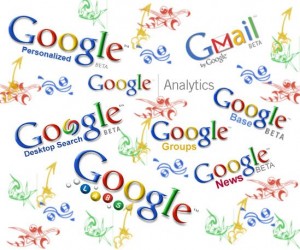 Cloud computing is one of the greatest leaps forward in technology, for both home and business, since the arrival of the internet. For businesses, especially, it has some incredible potential. As yet though, that potential is not being fully exploited by many businesses, especially of the smaller variety. This is a shame as it is these firms (and professional freelancers) that can make the most of the benefits. For the younger generation, the internet holds no terrors, but for those of us who can remember the days before it took over our lives, buzzwords like “cloud computing” come and go, some never to be heard of again. Cloud computing should, however, be voted “most likely to become standard” and I’d dare to venture it’ll be the only type of computing within a few years. For those yet to sample its delights, there is a relatively easy, risk and cost free way of trying it out; Google.
Cloud computing is one of the greatest leaps forward in technology, for both home and business, since the arrival of the internet. For businesses, especially, it has some incredible potential. As yet though, that potential is not being fully exploited by many businesses, especially of the smaller variety. This is a shame as it is these firms (and professional freelancers) that can make the most of the benefits. For the younger generation, the internet holds no terrors, but for those of us who can remember the days before it took over our lives, buzzwords like “cloud computing” come and go, some never to be heard of again. Cloud computing should, however, be voted “most likely to become standard” and I’d dare to venture it’ll be the only type of computing within a few years. For those yet to sample its delights, there is a relatively easy, risk and cost free way of trying it out; Google.
Google Drive
Google Drive, formerly Google Docs, allows you to upload your documents to an online storage and workspace. A vast range of document types are supported and the features allow you to upload existing documents or create new ones. The share part of this system is great, allowing colleagues across the globe (or just up the street) to collaborate and work on documents wherever and whenever they like. Archived copies of previous versions are available for up to thirty days, while the back up the system offers can save you when your computer’s snooze turns out to be terminal. You can access everything on your Google drive from laptops, PCs, Macs and smart phones.
Google Calendar
One vital, but hugely overlooked, business tool is the diary. In the old days we relied on the paper variety, the Filo-fax, the wall chart, the far-more-organised-than-us PA. Not anymore; the PA can join the ranks of the jobless (probably effectively organising the queue to her/his own advantage); the paper versions can be burned and the resulting pollution offset by pristine tracts of Amazonian forest. Google offers an excellent online, shareable calendar for you to pre-fill your busy days, weeks and months. If you use an Outlook diary, you can synch it with your Google calendar and share the details with any one of the 7 billion inhabitants of the planet.
Google Analytics
Google Analytics; a techie but nonetheless easy to use tool to analyse your web statistics. Analytics has been with us for a while; it’s very easy to use, has a load of inbuilt reports for you to examine the traffic to your site. This includes information on where it comes from, what it does and how long it does it for. It can help you to target your marketing, manage your SEO, and work out what’s failing and what’s not. Whether you’ve an established web presence or are just starting out on the web, this is one you can’t afford to be without.
Google Places
Google Places puts your business on the map; it combines the search and mapping features of Google to help local searchers find your business. You may already be listed, as Google uses data from business listing, including Yell. If you are listed you can claim your listing (it’s free) and expand the information on your business. It’s a nice, simple one page description with a location map, and can really boost business from local sources.
Google Alerts
The Google Alerts service is another, like Analytics, that you shouldn’t be without. You can set up a range of alerts from simply your business name to keywords relating to your products and services. The alerts then email you information on your specified phrases, when they appear on other websites. This helps you to streamline your copy and advertising to fit neatly with exactly what internet users are searching for.
Google’s free cloud solutions are a great introduction to this type of computing. They’re well designed and extremely user friendly, whatever your level of skill. As the technology develops much desktop software will migrate to the online version. Accounting online is one type of software that is growing in popularity – probably as it is one type of system that all businesses need and few small businesses fully understand. The flexibility, freedom and security that online software offers is likely to see it become the industry standard for most businesses in the very near future.
Author bio: Carlo Pandian is a freelance writer and blogs about business, entrepreneurs and technology covering everything from QuickBooks Online accounting software to team management tools. He loves reading great entrepreneurs biographies and speaking at conferences about how the internet can help small businesses.



